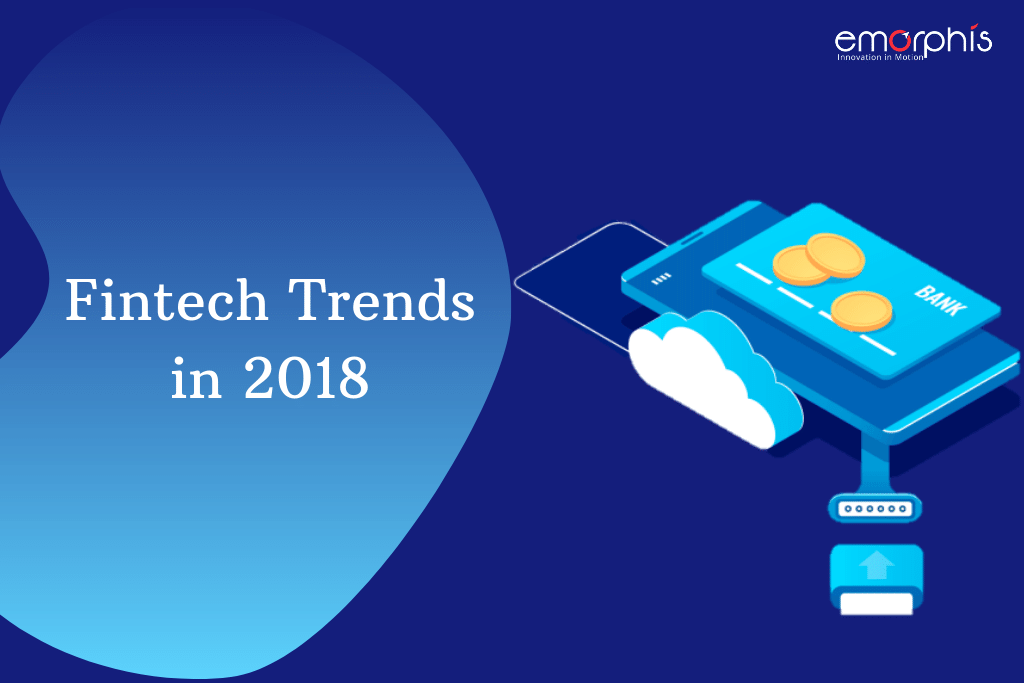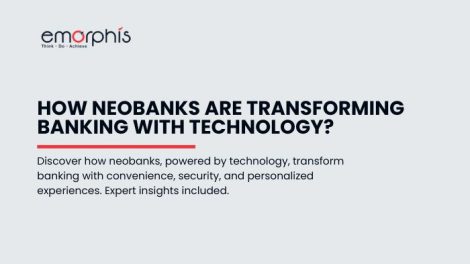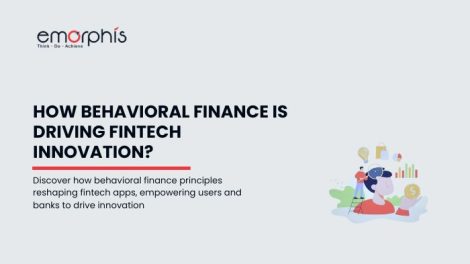Fintech trends in 2018 clearly indicate that technology is going to play a key role in all financial entities. Until 5 years back technology was only considered a tool for better management of databases and easy financial transactions; for most of us, financial technology was a synonym for online banking transactions only. But now time is changing fast for the financial industry and it will not be wrong to say that technology is part of the financial industry's DNA.
The conducive environment is allowing start-ups to do innovation in fintech application development; today more entrepreneurs are coming up with their fintech startups and in fact, technology is playing a key role in winning the trust of investors. With powerful smartphones, better technology players, and the support of investors, the fintech industry is progressing and changing very swiftly.
Trusting the current fintech trends, we can easily say that leveraging the technology evolution, the financial industry landscape has been going through one of the most profound and positive transformations. There have been several fintech trends disrupting financial services, reinventing the process that makes a comfortable user engagement; be it peer-to-peer lending, funding platforms, or mobile payments. These changes are so impactful that there is a significant growth in the way financial services work.
Fintech trends in 2018: Top technologies that will be playing a key role.
1. Blockchain Technology in Fintech
Talking about the innovation and upcoming fintech trends, Blockchain tops the list. Considered one of the most transparent and secure systems to transact and trade, Blockchain is reshaping the Fintech ecosystem with speed, transparency, faster payments, security, and compliance. This distributed ledger technology assists in distributing, storing, and tracking currencies and heading towards creating a revolution in the payments segment.
A large number of Fintech start-ups are testing out their ideas with blockchain technology to offer consumers faster processing speed and a lower cost. The distinctiveness of this system lies in the transactions that cannot be modified once performed, making the trading secure and trusted.
Blockchain technology will change the way banks and financial institutes operate.
Some of the many positive effects include:
- Making digital identification easy for the customers and banks connected to a blockchain. Traditionally, customers who want to have accounts in multiple banks are required to furnish personal details to every bank. This makes the process troublesome and time-consuming for both entities. Using blockchain will help in storing consumer information once and sharing it with the banks connected to the shared ledger. This will help in reducing costs along with maintaining security.
- Facilitate seamless cross-border payments. Usually, these payments involve intermediaries such as banks and remittance centers to process cross-border transactions. Blockchain technology eliminates the need for mediators and allows simplified payment transactions.
- Maintains an audit trail for all the trading and transactions carried out on the system that helps in detecting any illegal transaction from source to destination.
- Smart Contracts are another benefit of using Blockchain technology. These are self-executing contractual instructions that eliminate the need for third-party lawyers, the judicial system, or agreement papers between the trading parties. Smart Contracts make the contracting process efficient and quick.
2. Artificial Intelligence and Machine Learning in Fintech
With Artificial Intelligence expanding its wings across all industries, financial establishments are not left behind. The financial institutes realize the need for efficient customer services and thus have started working on the hold-ups in the customer journey. The use of AI in the trading process helps in the optimization of the process by identifying elements that hamper and slow down the flow of financial routes. Implementation of AI across all establishments would automate the most important back-office processes by enabling data analysis and communication across all connected systems within an organization. Some of the best examples of AI & Machine Learning technologies already implemented include voice services for customer interaction, fraud detection algorithms, etc. Another complex combination of the AI and machine learning interface was the natural language processing applications referred to as chatbots, extensively used in personal finance web or mobile applications. Implementing chatbots is considered as one of the most productive investments of financial institutions. These secured apps connect with your bank account and provide immediate insights into your existing finances and advice on smart savings, budgeting, and future considerations.
You may also like reading: How Machine learning & Artificial Intelligence helping Industrial Automation.
3. Cloud Computing & Advanced Data Analytics
Consumers today are more selective and look out for information that is of interest and specific to their needs. This is where data analytics and cloud computing benefit financial establishments. Utilizing these technologies will allow banking organizations to fetch data about consumer profiles & interests and provide a custom product, service, or experience to the consumers based on their requirements. With the increasing competition in the financial services industry, the institutes providing more secure, efficient, and tailor-made solutions to customers would lead. By enabling cloud-based backend infrastructure, companies can fetch more refined data, can cope with consumer demands better, and optimize working efficiency.
4. Social Trading and Financial Wellness Platforms
Does this come to you as a surprise? Thoughts on financial services involve security, trust, and use of confidential information and if it collaborates with social media, it looks like a concern. Well, with the increasing number of social media users and consumers looking for relevant information over social media platforms, it is definitely a good idea for financial institutes to walk on social trading. Here it does not mean carrying on transactions over social platforms but does more towards getting benefitted by the knowledge of other people and gaining insights on financial understanding. As social media has intensely reached consumer lives, financial establishments provide a social trading or financial wellness platform for consumers to share their thoughts, concerns, and queries allowing them to make potentially correct financial decisions.
5. Getting more mobile technology
One of the best examples to understand mobile technology in the finance sector is the way payments are made these days. With the Fintech industry becoming more consumer-focused, it has started being carried by mobile technology. As more and more consumers prefer to operate and trade via mobile phones, the introduction of new Fintech mobile app development will continue to rise allowing ease and comfort to the consumers.
6. Peer-to-peer Lending
Another hottest trend in Fintech is P2P lending. This is gaining momentum and is successful as the P2P firms offer investors/ lenders better returns on interest rates in comparison to the banks. This is one of the finance processes which are more of a challenge to retail banks. Making loan applications extremely time-saving, with no pre-payment penalties, quick approval time, and low-interest rates, peer-to-peer lending platforms are the niche and evolving trends not limited to sharing money.
Fintech trends augur well
With Fintech speeding up and advancing towards providing services to individuals, society, and businesses by keeping up with the digital transformation, the year 2018 will be the year that will see the collaboration of bank and Fintech companies working towards progress indicators such as
- Efficient financial business models
- Increased fair and visible competition
- Delighted customer experience
- Easy deployment of new technologies
- More switching and transparencies
- Introduction of newer and smarter products
- Well-organized asset and wealth management
- Improved Capital efficiency
The new technological innovations such as blockchain, AI, the Internet of things, and big data will work as a new source of energy for the financial industry that powers the need to get smarter and create a better-connected ecosystem that exceeds and meets the financial goals of consumers.







